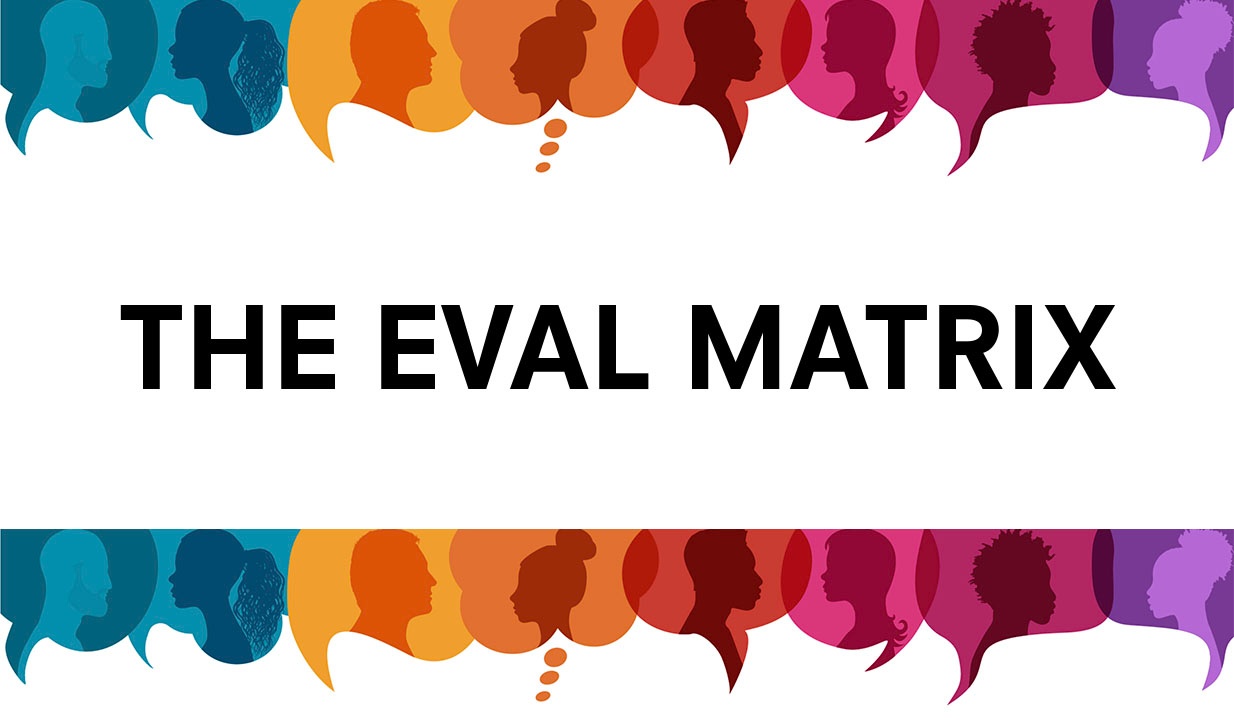The Eval Matrix: A Resource for Culturally Responsive and Equity-Focused Evaluation
Leer en español
By Felisa Gonzales, PhD, MPH
Increasingly, philanthropic foundations are focused on funding with a racial equity and justice lens, and are asking for specific evaluation approaches that will bring partners, communities and those most impacted together to identify important questions and outcomes. Likewise, evaluators often say they are going to use a culturally responsive or equity-focused evaluation approach, but it is sometimes unclear what that means in practice or how any one approach differs from others.
The Colorado Trust supported the development of an online, interactive resource called the Eval MatrixTM designed to help evaluators, practitioners, communities and funders gain a better understanding of seven evaluation approaches and philosophies (listed below) that address issues of equity and prioritize meaningful partnership between evaluators and communities.
- Culturally competent evaluation: Requires that evaluators acknowledge their own biases, build cross-cultural understanding, and attend to the impact of race and power in their work and in the context of the evaluation.
- Culturally responsive evaluation: Focuses on incorporating culture, lived experience and context in evaluation through inclusivity. Community members and evaluators with direct experience are engaged as partners in all phases of evaluation.
- Culturally responsive and equitable evaluation: Attempts to provide evaluators with practical guidance for building diversity, inclusion and equity into all aspects of evaluation; uses a participatory process that shifts power to individuals most impacted.
- Culturally responsive Indigenous evaluation: Recognizes the importance of one’s connection to place and view’s one’s story as a rich and legitimate data source; focuses on sovereignty and self-determination.
- Empowerment evaluation: Provides those with a direct stake in program success with the tools and knowledge to attain their goals; fosters self-determination and sustainability.
- Equity-focused evaluations: Centers affected groups, addresses context (e.g., historical, economic, social) and is honest about the limitations of evaluation efforts.
- Transformative evaluation: Addresses power, human rights and social justice with the goal of supporting people in transforming the status quo.
The Eval Matrix provides a brief history, description and unique contributions of each approach and philosophy, and describes how they apply seven key principles of culturally responsive and equity-focused evaluation. Visitors to the website can determine which approach best suits their needs by considering the focus areas of their project. Foundational references and an annotated bibliography are available to those wishing to dive deeper.
Without authentic engagement of those most impacted by inequities, many of the most pressing issues of our day will not be solved. Culturally responsive and equity-focused evaluations engage communities, practitioners, evaluators and funders in a collective pursuit of equity. Click here to learn more.

